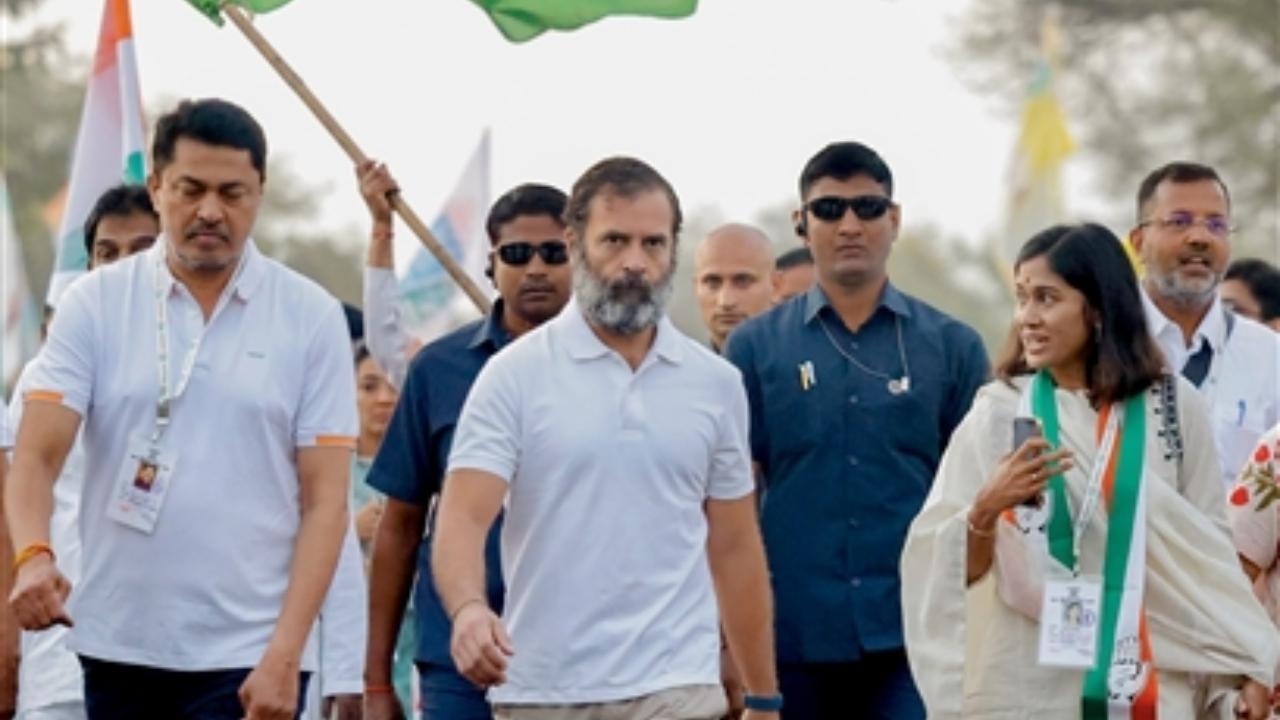This is a padyatra (foot march) for the country organised by the Congress. People should join it by walking on their own for issues close to their heart. In the current political discourse, non-issues are being given priority, while important ones are sidelined. We wish to highlight those (important issues)," Kumar added

File Photo
Diversity was India's strength and the aim of the Congress's Bharat Jodo Yatra was to protect it, party leader Kanhaiya Kumar said in Nanded in Maharashtra on Friday.
ADVERTISEMENT
Addressing a press conference, Kumar, who has been part of the Rahul Gandhi-led foot march from Kanyakumari in Tamil Nadu since September 7, said there is a difference between a political yatra and an electoral one, adding that ''everything in politics is not for electoral gains".
"The objective of this yatra is to unite people emotionally in this diverse land. We have to be united not only geographically but emotionally. Our hopes, aspirations should also be united. If there is an emotional impact of this yatra on the people, electoral impact will also be seen," Kumar said.
"This is a padyatra (foot march) for the country organised by the Congress. People should join it by walking on their own for issues close to their heart. In the current political discourse, non-issues are being given priority, while important ones are sidelined. We wish to highlight those (important issues)," Kumar added.
Also read: 'Magizhichi' says Nalini's counsel on Supreme Court verdict
Slamming the Bharatiya Janata Party (BJP), he said the ruling party claims the country is already united and that the Congress divided it 75 years ago.
"There cannot be a greater untruth than this. (Pakistan founder) Jinnah wasn't a practising Muslim, but he played the politics of Muslim identity, while Maulana Abul Kalam Azad was a Muslim scholar, who laid the foundation of modern education in independent India," Kumar said.
Azad maintained that education was the basic right of citizens that will bring about a social revolution, Kumar said, hailing the country's first education minister.
He claimed that the Muslim League and the Hindu Mahasabha had formed government in alliance despite stating that Hindu and Muslims were different and could not exist.
He said the divisive politics of these two outfits had led to the partition of the country on the eve of Independence.
This story has been sourced from a third party syndicated feed, agencies. Mid-day accepts no responsibility or liability for its dependability, trustworthiness, reliability and data of the text. Mid-day management/mid-day.com reserves the sole right to alter, delete or remove (without notice) the content in its absolute discretion for any reason whatsoever.
 Subscribe today by clicking the link and stay updated with the latest news!" Click here!
Subscribe today by clicking the link and stay updated with the latest news!" Click here!







